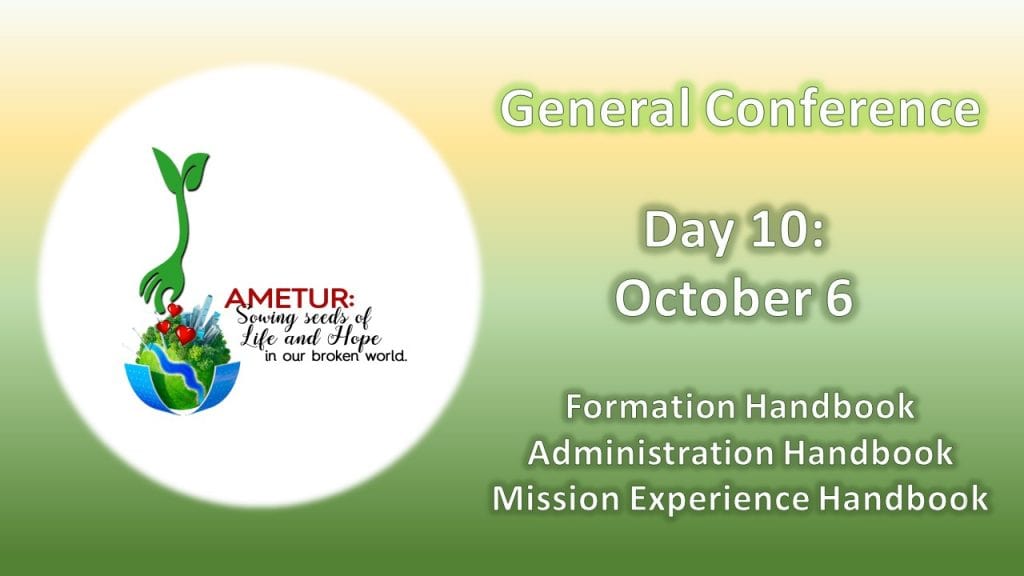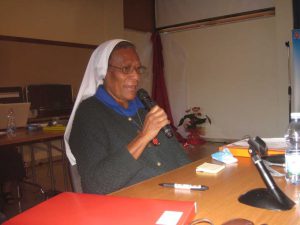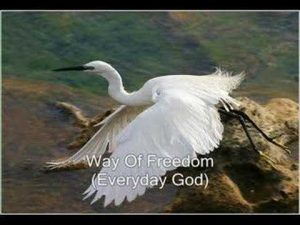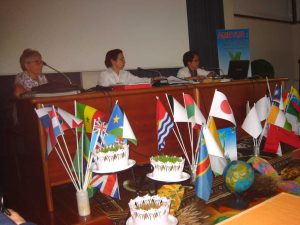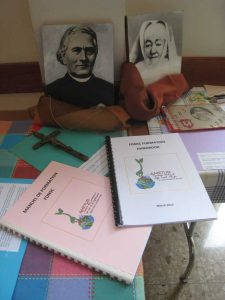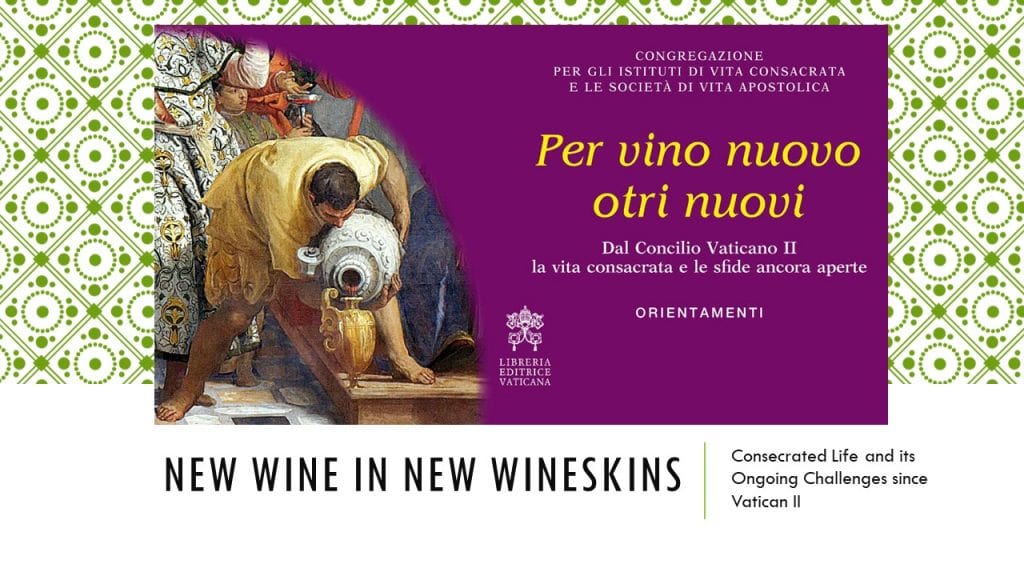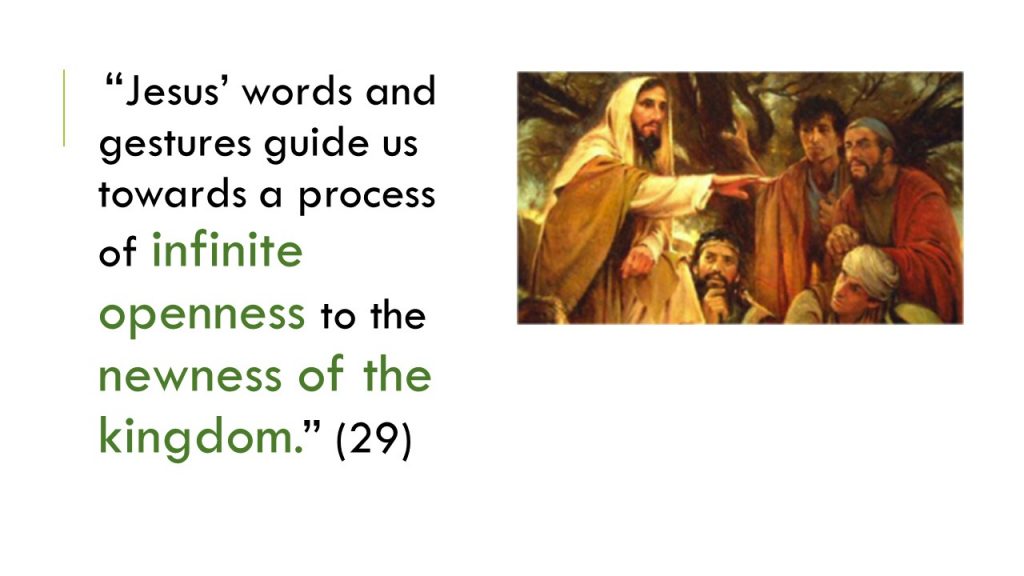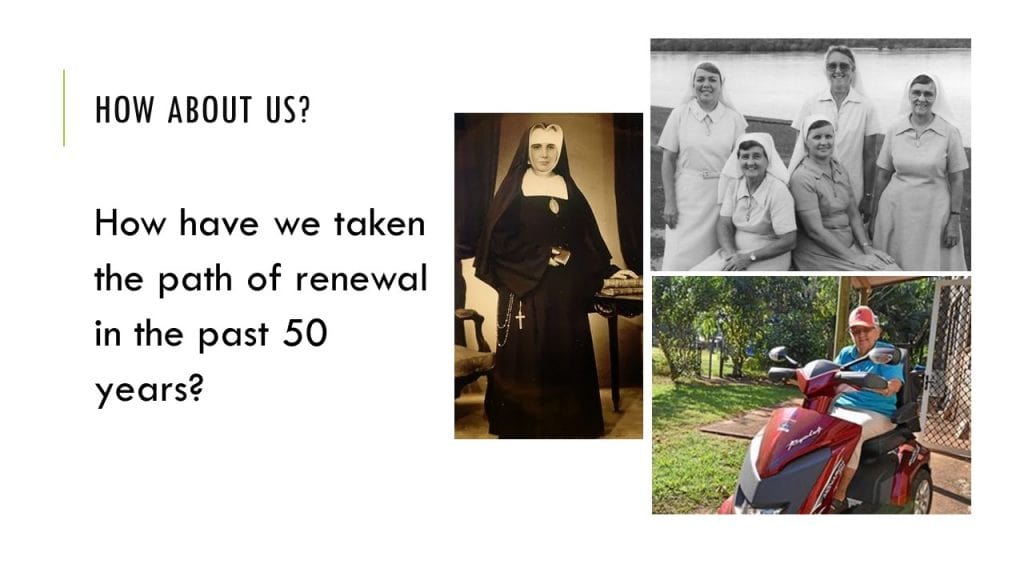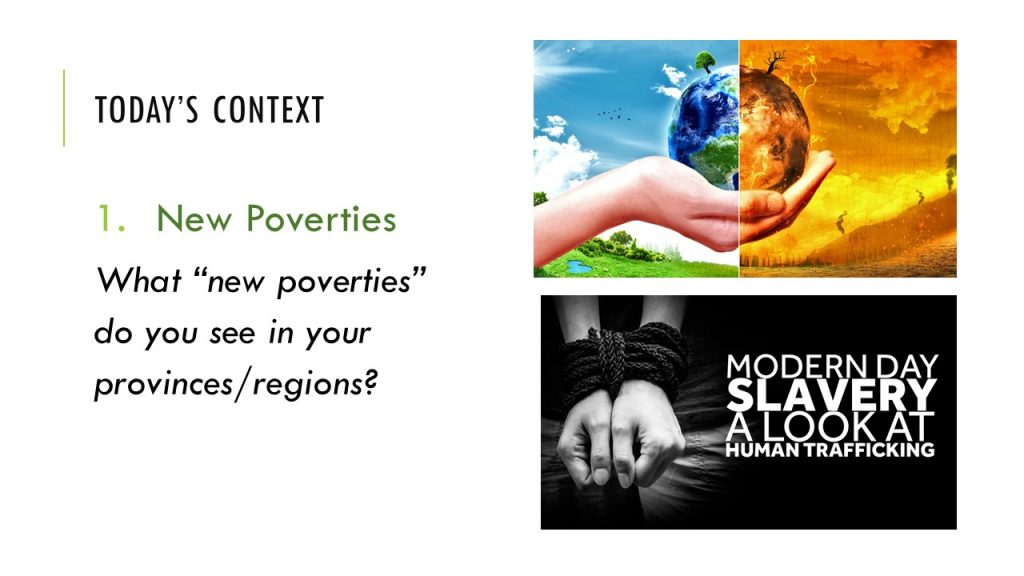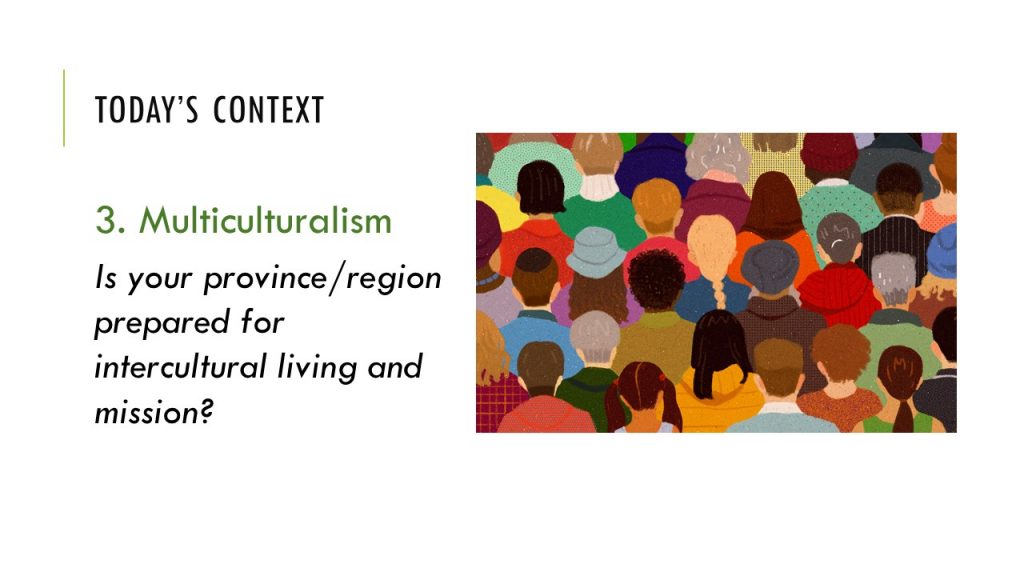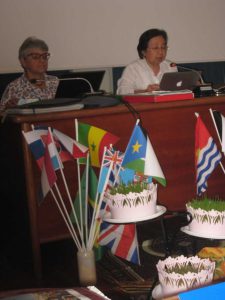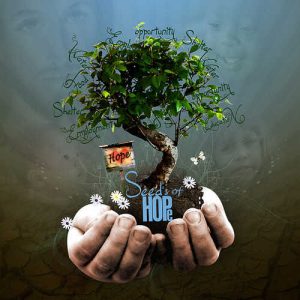The prayer for this morning was prepared by the Province of PNG. We reflected on the hymn “Everyday God.” We are grateful for God’s presence in creation, in our broken world and in each of us together here, representing our Provinces and Regions!
Following the prayer, Sr. Merle Salazar presented the revised Formation Handbook. She described to us the process that was used to produce this handbook, that was approved by the Congregational Leader with the consent of her Council on 24 March 2017. She made it very clear to us that this Handbook is not just the work of the IFT (International Formation Team) or the General Administration. It is the work of the whole Congregation. It was not written overnight but is the result of almost six years of writing, reviewing and revising. Sr. Merle presented the contents of this handbook to us.
After that she used the new Guidelines from CICLSAL “New Wine in New Wineskins” as starting points in our conversations around Formation. The document characterizes today’s context with the following key words: new poverties; collaboration; multiculturalism and accelerated change. The following ongoing challenges are mentioned: abandonment of religious; interculturality; wholistic formation; formation of formators; ongoing formation and collaborative leadership. What are the implications of these challenges to formation? What “new paths” are we called to imagine and to take? Among the participants there was a genuine desire to improve our formation. The importance of screening candidates was acknowledged.
After lunch Sr. Marife spoke about the Administration Handbook. She explained that with the approval of our new Constitutions, the task of revising existing handbooks and writing new ones fell on the shoulders of this General Administration. Three congregational handbooks are referred to in our Constitutions, the FDNSC Formation Handbook, the FDNSC Administration Handbook and the FDNSC Stewardship of Temporal Goods Handbook. All three handbooks have to be approved by the Congregational Leader after consulting the Council. Yesterday afternoon, Sr Laurentia presented an outline of the FDNSC Stewardship of Temporal Goods Handbook and earlier this morning Sr Merle presented the approved FDNSC Formation Handbook.
The FDNSC Administration Handbook aims to provide information and guidance at each level of governance of the Congregation. When this FDNSC Administration Handbook is complete it will have sections for the use of all levels of governance namely: the Congregational Leader and her Council; the Provincial Leader and her Council; the Regional Leader and her Council and the local community leader. The first document that was produced is the Provincial Leaders’ Handbook because the Provinces are the “major units of life and organization within the Congregation…” (Const. #127). Sr Marife presented this Provincial Leaders Handbook and proposed that it be a working document for one year. At the end of 2018 the Provinces and Regions will be asked for feedback in order to make improvements.
Following this presentation the participants shared in small groups their experiences as leaders. It was a very honest and open sharing. We ended the day with the Eucharist.
Jour 10
La prière pour ce matin a été préparée par la province de PNG (Papouasie Nouvelle Guinée). Nous avons réfléchi sur l’hymne “Dieu de tous les jours”. Nous sommes reconnaissantes pour la présence de Dieu dans la création, dans notre monde brisé, et dans chacune de nous ici, et dans nos Provinces et Régions que nous représentons!
Après la prière, Sr Merle Salazar a présenté le manuel de la formation révisé. Elle nous a décrit le processus qui a été utilisé pour faire ce manuel, qui a été approuvé par la Supérieure Générale avec le consentement de son Conseil le 24 mars 2017. Sr. Merle nous a clairement indiqué que ce manuel de formation n’est pas seulement le travail de l’IFT (Equipe International de la Formation) ou de l’Administration Générale. C’est le travail de toute la Congrégation. Ce manuel n’a pas été écrit en un jour, mais c’est le résultat de presque six ans d’écriture et de révision. Sr. Merle nous a présenté le contenu de ce manuel.
Ensuite, elle a utilisé les nouvelles orientations de la congrégation pour les instituts de vie consacrée et les sociétés de vie apostolique (civcsva). “A vin nouveau outres neuves” comme points de départ dans nos conversations autour de la Formation. Le document caractérise le contexte d’aujourd’hui avec les mots clés tels que: des nouvelles pauvretés; collaboration; le multiculturalisme et le changement accéléré. Les défis mentionnés sont encore d’actualité: l’abandon de religieux; l’interculturalité; formation complète; formation des formatrices; formation continue et leadership de collaboration. Quelles sont les implications de ces défis pour la formation? Quels “nouveaux chemins” sommes -nous appelées à imaginer et à prendre? Parmi les participants, il y avait un véritable désir d’améliorer notre formation. L’importance de la procédure de sélection a été reconnue.
Après le déjeuner, Sr. Marife a parlé du Manuel d’administration. Elle a expliqué qu’avec l’approbation de nos nouvelles Constitutions, la tâche de réviser les manuels existants et d’en écrire de nouveaux incombait à l’Administration Générale. Les trois manuels de la congrégation dont il est question dans nos constitutions sont le Manuel de la Formation FDNSC, le Manuel de l’Administration FDNSC et le Manuel de l’Administration des Biens Temporels FDNSC. Ces trois manuels doivent être approuvés par la Supérieure Générale après consultation du Conseil. Hier après-midi, Sr Laurentia nous a présenté une mise à jour du Manuel de l’Administration des biens temporels FDNSC et, au début de la matinée, Sr Merle nous a présenté le Manuel de la Formation FDNSC approuvé.
Le Manuel de l’Administration FDNSC a pour but de donner des indications et des lignes de conduite à chaque niveau du gouvernement de la congrégation. Lorsque ce Manuel de l’Administration FDNSC sera terminé, il comportera des sections à l’usage de tous les niveaux de gouvernement, à savoir: la Supérieure générale et son conseil; la Supérieure provinciale et son conseil; la Supérieure régionale et son conseil et la Supérieure locale. Le premier document produit est le Manuel des Supérieures provinciales, car les Provinces sont “les principales unités de vie et d’organisation dans la congrégation …” (Const. N°127) De plus, notre ancien Manuel pour l’Administration provinciale avait besoin d’être révisé et aligné sur nos nouvelles constitutions. Les sections concernant les autres niveaux du gouvernement suivront en temps utile. Sr Marife a présenté ce Manuel des Supérieures Provinciales et a proposé ce document comme document de travail pendant un an. À la fin de 2018, les Provinces et les Régions devrons faire des commentaires pour améliorer ce document.
À la suite de cette présentation, les participantes ont partagé en petits groupes leurs expériences en tant que leaders. C’était un partage très honnête et ouvert. Nous avons fini la jourée avec l’Eucharistie.
